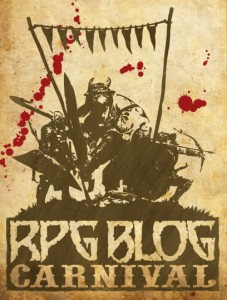While the Dungeon’s Master team enjoys some well-deserved vacation time, we’re breaking out the greatest hits and shining a spotlight on a few of our favourite articles from 2011. We’ve searched for hidden gems that our newer readers might have missed and our long-time readers will enjoy reading again. Enjoy a second look at these greatest hits from Dungeon’s Master.
Without honesty there is chaos. I used this as a heading in the original article and the more I think about that line the more I believe that it’s the absolute truth.
When you play D&D at home it’s usually with a group of very close-knit buddies. This dynamic usually means that there are no problems or issues regarding trust and honesty. There are no strangers at this gaming table and it’s unlikely you’d want to cheat your friends. But when it comes to public play, some gamers (a few bad apples, as it were) will try to take advantage of the situation for their own personal gain, possibly at the expense of playing honestly.
I want to be clear that the overwhelming majority of my public-play experiences have been very positive. I’ve only ever had a couple of instances where players were caught, or even suspected of, cheating or intentionally being dishonest. However, I think that in some public-play situations, especially when there are newer players at the table, the desire to push the boundaries of trust are more prevalent.
During some D&D Encounters sessions players will try to gain an advantage by intentionally bending or breaking the rules. Where this is most problematic is among newer players that don’t have character builder and make PCs the old fashioned way. The carelessness with which some players throw together a character infuriates me. They add modifiers across the board because they don’t know or don’t understand when they apply or not. They’ll take more powers than they’re supposed to or use encounter or daily powers even after they’re expended. Even after I’ve politely given them the benefit of the doubt, explained that they’ve made an error somewhere and that they should correct it before the next game, they still use the flawed sheets.
I’ve finally had to crack down on bad character creation. I implemented a new rule that if you make your character without character builder you have to leave it with me between sessions so I can review it. In most cases I just recreate the PC in character builder to validate the numbers are right. At first I found lots of problems on every character sheet, but now that the group knows I’m checking they’ve become more diligent about accuracy.
What bothers me most is that some players (again, a very select few) didn’t feel that honesty was required until they realized they were less likely to get away with it. You always want to believe that people will do the right thing. In a gaming situation, especially with new players, you hope that they’re honest and will follow the rules of the game and of the unwritten social contract. All it takes is one or two bad instances to sully everyone’s view of D&D. So let’s all do our part to play honestly and encourage fair play in our games moving forward; because without honesty there is chaos.
 This month’s RPG Blog Carnival is being hosted by Nevermeet Press. The topic is Things to Love, Things to Hate.
This month’s RPG Blog Carnival is being hosted by Nevermeet Press. The topic is Things to Love, Things to Hate.

